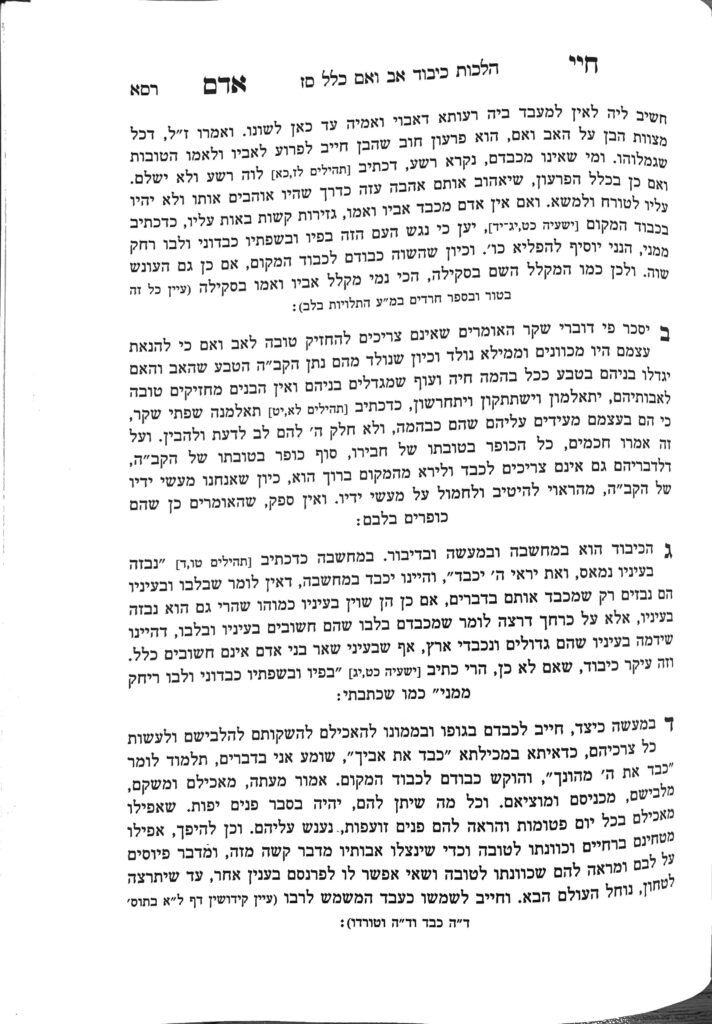We are beginning siman 3. The Chayei Adam will begin clarifying some of the halachos of kibbutz av v’eim, but still approaches the halachos of this siman from more of a mussar perspective.
The Chayei Adam writes that not only is kavod demonstrated through actions and speech, but also through attitudes and thoughts. Regarding thoughts, the pasuk says נבזה בעיניו נמאס ואת יראי ה יכבד (Tehillim 15:4). In this kapitel, David Hamelech describes a person with many qualities. One of these qualities is someone who looks at themselves as lowly. However, rather than pull others down with them, they honor others. The honor described in the pasuk must be referring to honoring others internally; i.e., where internally they truly respect others. The pasuk is contrasting the inner perception of oneself to one’s inner perception of others who are Yirei Hashem. And it also cannot be referring to external respect, because it would not end up reflecting itself as true kavod to others, but would clearly be lacking.
The Chayei Adam applies this pasuk to kibbud av v’eim, in that a person should look at one’s parents as though they are the elite of the generation, regardless of how others perceive them. The primary element of kibbud is this internal thought process, because even if a person externally respects their parents through speech and actions, real kavod is through one’s thoughts as well. Hashem discounts those who only provide lip service but do not feel their actions or speech in their heart. The navi writes, בפיו ובשפתיו כבדוני ולבו רחק ממני, with their mouth and lips they honor me, but their heart was [still] distant from me (Yeshaya 29:13), meaning that even when one provides lip service, it is still clear when one’s heart is not behind their actions.
The Chayei Adam stresses that the concept of kibbud av v’eim is not just about going through the actions, but that the mitzvah is to create a new way of looking at one’s parents. Even if one’s parents do not see themselves as extraordinary individuals, in a child’s mind, they should see them as extraordinary.
This thought process can be challenging, as it can be hard to view one’s parents as extraordinary when they may appear to a child and to others as more simple. Be’ezras Hashem, we will discuss practical tips in the next shiur.
Summary
The mitzvah of kibbud av v’eim is not just about speech or actions, but to create a new way of looking at one’s parents which a child feels internally as well.



